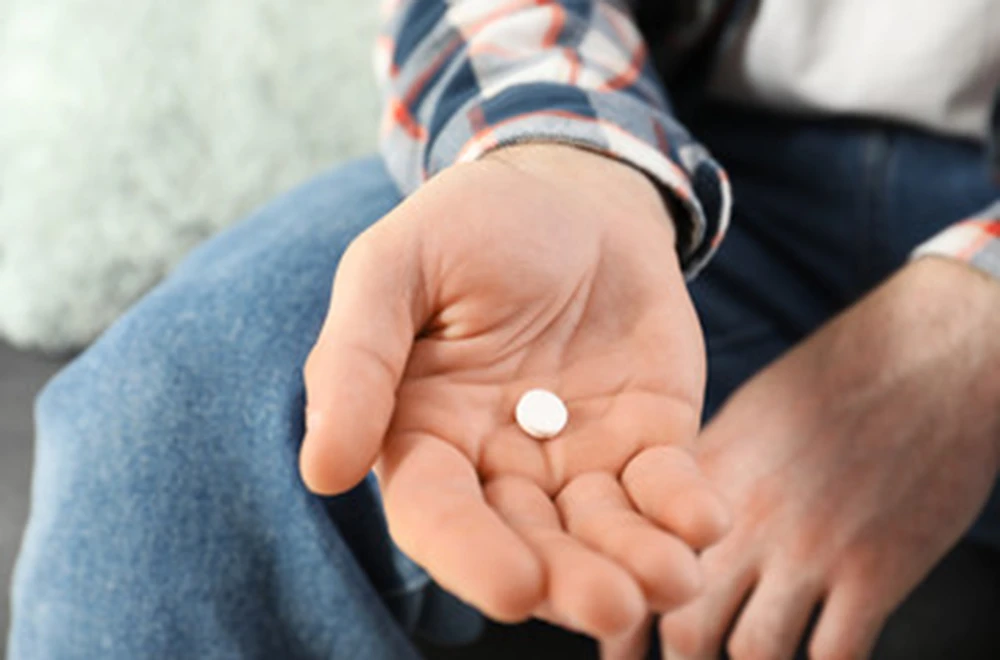
What a Typical Clomid Treatment Plan Looks Like for Men
Men often think about testosterone therapy when they experience symptoms such as reduced libido, mood changes, or fertility issues. But for many men in their 30s to 50s, clomid has emerged as an option that can preserve their fertility while still improving testosterone levels. Originally developed to support female fertility, Clomid therapy for men is a smart alternative if you’re looking to boost natural testosterone production without compromising sperm count, unlike TRT, which replaces testosterone externally. Whether you’re dealing with secondary hypogonadism, recovering from anabolic steroid use, or simply exploring your options, Clomid treatment can help you reclaim your health and vitality.
What Is Clomid and Why Is It Prescribed for Men?
Clomid, known by its generic name clomiphene citrate, is a selective estrogen receptor modulator (SERM), traditionally used to help women ovulate. Doctors are increasingly prescribing Clomid treatment for men to address issues related to low testosterone and male infertility.
How Clomid Works in Men’s Bodies
Clomid blocks estrogen receptors in the hypothalamus, prompting the brain’s pituitary gland to release more luteinizing hormone (LH) and follicle-stimulating hormone (FSH). These hormones signal your testes to increase testosterone and sperm production. Instead of introducing external hormones like TRT, Clomid for men stimulates your body to produce its own natural testosterone.
Common Reasons Men Take Clomid
One of the reasons men turn to Clomid treatment is secondary hypogonadism, where the problem lies in the signaling between the brain and the testes rather than in the testes themselves. It’s also common in men who have low testosterone but still want to avoid the fertility-suppressing effects of TRT, such as those trying to conceive while treating low T. Bodybuilders often choose Clomid as part of post-cycle therapy to restart natural testosterone production after steroid use. In each case, the goal is to stimulate the body to function as it should, safely and effectively.
The Typical Clomid Treatment Plan: What to Expect
While Clomid treatment for men must always be customized to the individual, most plans follow a general framework that includes dosage, duration, monitoring, and adjustments. Your medical professional at Rise Men’s Health will personalize your treatment based on lab results, age, health history, and any side effects.

Typical Dosage and Schedule
A standard Clomid treatment for men often starts at a low dose, typically 25mg to 50mg, taken daily or every other day. The exact dosage and frequency will depend on baseline testosterone levels, symptoms, and how your body responds to the medication. It’s crucial to take Clomid exactly as prescribed and under medical supervision, since incorrect usage can lead to side effects or hormonal imbalances.
Duration of Treatment
The length of a Clomid treatment plan can vary; the duration is influenced by how your body responds to the therapy and your treatment goals, whether boosting testosterone, improving fertility, or both. Periodic check-ins with your provider are essential to assess your progress and make necessary adjustments.
Expected Timeline for Results
Most men notice subtle improvements, such as enhanced mood, increased energy, or a return of libido, within the first few weeks. Improvements in sperm count and quality may take longer, often becoming noticeable after two to three months. Providers usually recheck hormone panels at 4- to 6-week intervals to monitor progress and determine next steps.
Monitoring and Adjustments During Clomid Therapy
Clomid therapy is generally safe, but regular monitoring is essential to ensure that the treatment is safe and effective. Your provider will adjust your dosage or frequency based on how your body responds.
Lab Tests to Expect (Testosterone, Estradiol, etc.)
During Clomid treatment, your provider will order routine blood tests to monitor hormone levels. These typically include total and free testosterone, estradiol (a form of estrogen), LH, FSH, and sometimes prolactin. These markers help assess whether Clomid effectively stimulates your hormone production and whether any estrogen-related side effects are developing. Testing is usually done every 4 to 6 weeks during the initial phase and spaced out as you stabilize.

Common Adjustments to Dosage or Frequency
Your Clomid dosage may be tweaked based on how your body responds. For example, if your testosterone levels spike too high or estrogen levels rise, your doctor might reduce the dose or shift to an every-other-day schedule. If hormone levels remain too low or your symptoms persist, your provider may consider increasing the dosage slightly or combining Clomid with other supportive therapies.
What to Do If Clomid Doesn’t Work for You
While Clomid treatment is effective for many men, not everyone responds in the same way. Your provider may explore alternatives if you don’t see the desired effects after a few months. This might include switching to testosterone replacement therapy (TRT), trying other medications like hCG, or focusing more on lifestyle changes such as improved sleep, nutrition, and exercise. At Rise Men’s Health, you’ll receive a medically guided plan that ensures the next step is always clear and based on your unique needs.
Potential Side Effects and Risks of Clomid for Men
Like any medication, Clomid therapy comes with potential side effects. However, most are mild and manageable when used correctly and under medical supervision.
Visual Disturbances, Mood Changes, and Other Side Effects
Some men report side effects such as blurred vision, mood swings, irritability, or mild headaches. These effects are typically temporary and resolve when the dosage is adjusted or treatment is paused. Always communicate openly with your provider if you experience persistent or concerning symptoms. Most side effects are dose-dependent, and simple changes can often alleviate them without interrupting the benefits of treatment.
The Importance of Medical Supervision
Self-prescribing Clomid therapy or sourcing it without medical guidance is risky and strongly discouraged. Working with a knowledgeable medical provider is essential to ensure that your hormone levels remain balanced and that the treatment is helping. At Rise Men’s Health, every Clomid treatment for men is designed and monitored by a medical team that understands your goals and physiology. This approach maximizes benefits, minimizes side effects, and ensures your health is the top priority.
Is Clomid Right for You?
Whether Clomid might be a good fit for you depends on your health history, symptoms, and reproductive goals. The best way to know is to ask the right questions and speak with a provider specializing in men’s health.
Key Questions to Ask Your Doctor
Before starting Clomid for men, consider asking questions such as:
- “Will Clomid affect my fertility or help improve it?”
- “How often will I need lab work while on Clomid?”
- “What side effects or long-term risks should I watch for?”
- “What are the success rates for men with symptoms like mine?”
- “How will this treatment affect my mood, energy, or sex drive?”
- “What are my options if Clomid doesn’t work for me?”
These questions can help you and your provider determine whether Clomid is the right approach for your needs.
How Rise Men’s Health Personalizes Clomid Therapy
At Rise Men’s Health, each Clomid treatment plan is personalized based on your unique lab results, goals, and health history. Our experienced providers offer continuous support, transparent communication, and expert guidance every step of the way. Whether you want to optimize testosterone levels, support fertility, or feel more like yourself again, Rise Men’s Health is here to help you achieve those goals.
Ready to explore Clomid therapy? Book a consultation today.
Frequently Asked Questions (FAQs)
Q. How does Clomid help men with low testosterone?
Clomid stimulates the brain to produce LH and FSH hormones that signal the testes to increase natural testosterone production. Unlike external testosterone, Clomid helps your body restore its own hormonal balance.
Q. What is the usual Clomid dosage for men?
Most men take 25 to 50mg daily or every other day, depending on individual needs, lab results, and how they respond to treatment.
Q. How long should men take Clomid?
Clomid treatment typically lasts between 3 and 6 months, though some men may need a longer course depending on how their body responds and their treatment goals.
Q. What are the side effects of Clomid therapy?
Some men experience mild mood changes, headaches, slight visual disturbances, or nausea. These side effects are generally short-lived and manageable with medical supervision.
Q. Is Clomid a safe alternative to testosterone therapy?
Yes, especially if you want to preserve fertility while raising testosterone levels. Clomid supports your body’s natural hormone production, unlike external testosterone, which can suppress sperm production.

Jessica is from the Dallas-Fort Worth area. She graduated from Texas Tech University with a Bachelor’s in Psychology and a minor in Nutritional Sciences. She then went on to obtain her Master of Medical Science from Lincoln Memorial University-DCOM. For the past 8 years, she has specialized in men’s health and primary care and is passionate about improving her patient’s quality of life. In her free time, she enjoys spending time with her husband and daughter (and pups!), working out, target practice, hiking, traveling, and DIY home improvement projects.
